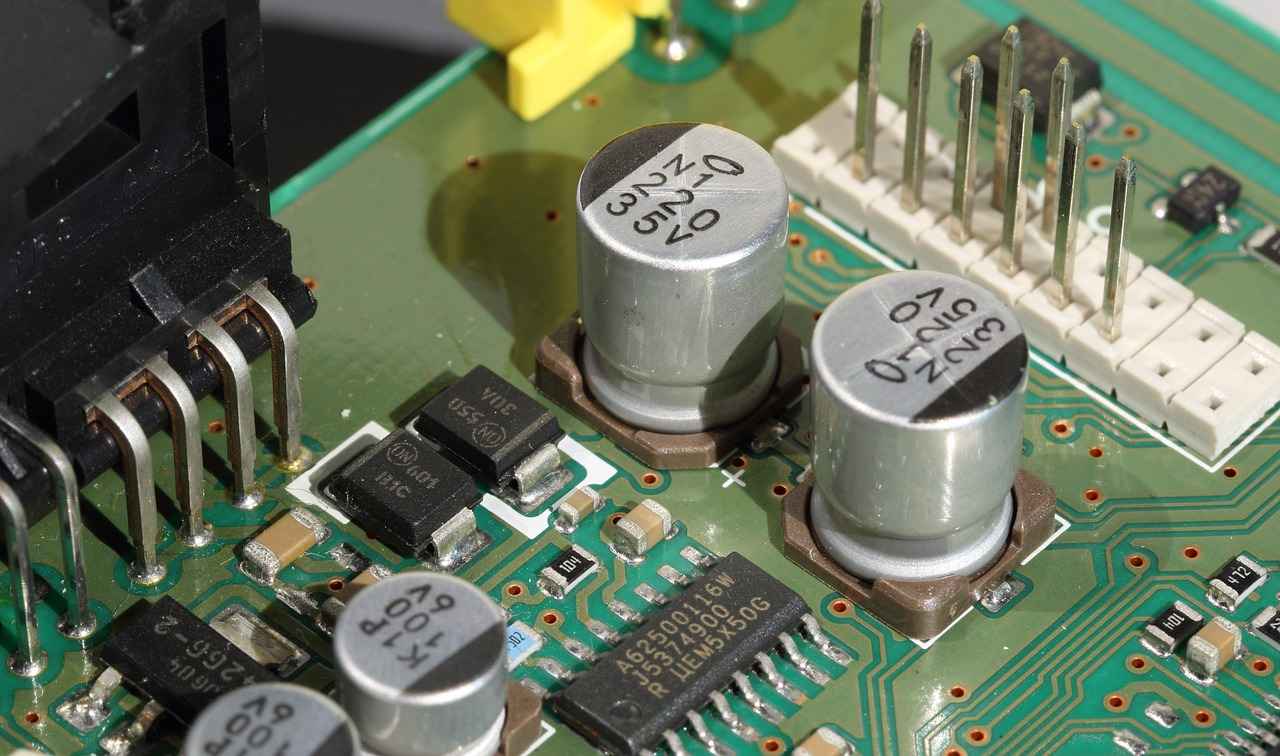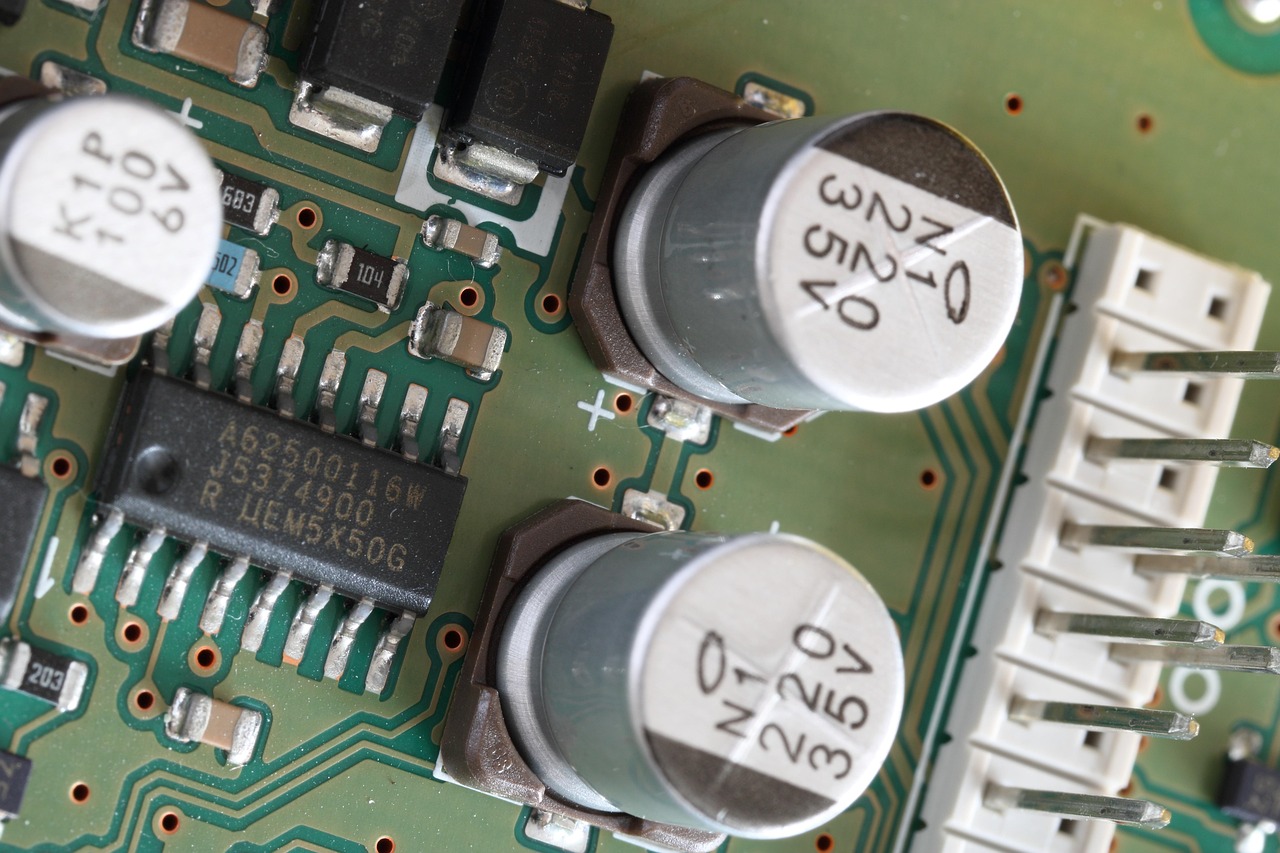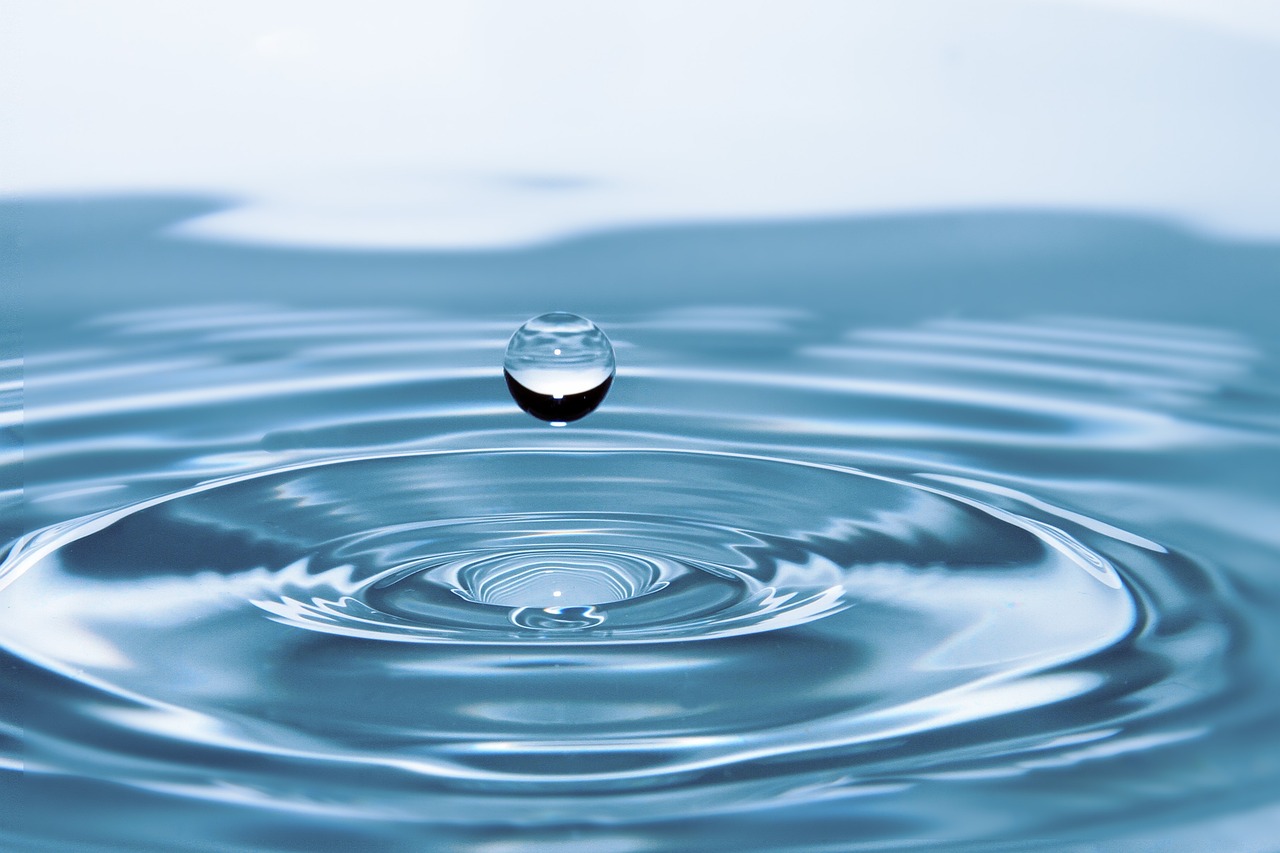This article explores effective strategies for maintaining electrolyte balance during water fasting, an essential aspect of ensuring safety and health throughout the fasting process.
What Are Electrolytes and Their Importance?
Electrolytes are essential minerals that carry an electric charge and play critical roles in various bodily functions. These include hydration, nerve function, and muscle contraction. During a water fast, maintaining an appropriate level of electrolytes is vital, as these minerals help regulate fluid balance, acid-base balance, and muscle and nerve function.
Signs of Electrolyte Imbalance
Recognizing the signs of electrolyte imbalance is crucial during a water fast. Symptoms can range from mild to severe and may include:
- Fatigue
- Muscle cramps
- Confusion
Being aware of these symptoms can help you take prompt action to restore balance during fasting.
Common Symptoms to Watch For
Some common symptoms of electrolyte imbalance include:
- Dizziness
- Headaches
- Irregular heartbeat
These signs may indicate that your body is in need of electrolytes, and immediate action should be taken to address these issues.
Fatigue and Weakness
Fatigue and weakness are often the first signs of electrolyte imbalance. These symptoms can hinder your fasting experience and overall well-being, making it essential to monitor your body’s signals closely.
Muscle Cramps and Spasms
Muscle cramps and spasms can occur due to low levels of potassium or magnesium. Staying vigilant about these symptoms can help you address imbalances before they escalate into more serious health issues.
Long-Term Implications of Imbalance
Long-term electrolyte imbalances can lead to serious health issues, including kidney problems and cardiovascular complications. Understanding these risks is vital for anyone engaging in prolonged fasting.
How to Maintain Electrolyte Balance While Fasting
Maintaining electrolyte balance during a water fast involves strategic planning and knowledge of dietary sources and supplements that can help. Here are some effective methods to consider:
Hydration Strategies
Proper hydration is key to maintaining electrolyte levels. Drinking water infused with electrolytes or consuming mineral-rich broths can aid in replenishing lost minerals during fasting.
Incorporating Electrolyte Supplements
Electrolyte supplements can be beneficial, especially for those fasting for extended periods. Choosing high-quality supplements can ensure that your body receives the necessary minerals without added sugars or fillers, thus supporting overall health.
Foods to Consider Before and After Fasting
While the focus is on water during the fast, the foods consumed before and after are equally important for electrolyte balance. Certain foods can help replenish lost minerals effectively:
High-Potassium Foods
Foods rich in potassium, such as bananas, avocados, and sweet potatoes, can help restore electrolyte balance before and after fasting. Including these in your diet can be beneficial.
Magnesium-Rich Options
Magnesium is crucial for muscle function and energy production. Foods like nuts, seeds, and leafy greens are excellent sources to consider when preparing for or recovering from a fast.
Consulting with Healthcare Professionals
Before starting a water fast, consulting with healthcare professionals can provide personalized advice on maintaining electrolyte balance based on individual health needs and conditions.
Importance of Medical Guidance
Medical guidance ensures that fasting is conducted safely, particularly for individuals with pre-existing health conditions or those taking medications that may affect electrolyte levels.
When to Seek Immediate Help
Understanding when to seek medical help during fasting is crucial. If severe symptoms arise, such as persistent vomiting or confusion, immediate medical intervention may be necessary to prevent complications.

What Are Electrolytes and Their Importance?
Electrolytes are essential minerals that carry an electric charge, and they play a vital role in numerous bodily functions. These minerals include sodium, potassium, calcium, magnesium, and chloride, among others. Understanding their significance is crucial, especially for individuals considering a water fast. This article delves into the importance of electrolytes, their functions, and how to maintain their balance during fasting.
Electrolytes are involved in hydration, as they help regulate the balance of fluids in and out of cells. This balance is critical for maintaining blood pressure and overall bodily function. Additionally, electrolytes are indispensable for nerve function. They assist in transmitting electrical signals throughout the nervous system, which is necessary for muscle contractions and communication between the brain and the body. Without adequate levels of these minerals, the body can experience a range of issues that can impact overall health.
During a water fast, the intake of food is significantly reduced, which can lead to a depletion of electrolytes. This is particularly concerning as it can result in an electrolyte imbalance, which may manifest through various symptoms. For example, low sodium levels can lead to headaches and confusion, while insufficient potassium may cause muscle cramps and irregular heartbeats. Recognizing these signs is essential for anyone undertaking a fasting regimen, as timely intervention can prevent more serious complications.
In addition to hydration and nerve function, electrolytes also play a crucial role in muscle contraction. When you exercise or even during daily activities, your muscles require electrolytes to function properly. A deficiency can lead to muscle fatigue and weakness, making physical exertion challenging. Therefore, maintaining electrolyte levels is not just about comfort; it is about ensuring that your body operates efficiently.
To maintain electrolyte balance during a water fast, it is essential to implement strategies that replenish these vital minerals. One effective method is to consume electrolyte-infused water or mineral-rich broths. These options can provide necessary minerals without breaking the fast. Additionally, incorporating high-quality electrolyte supplements can help ensure adequate intake, especially during extended fasting periods.
In conclusion, understanding the role of electrolytes is fundamental for anyone considering a water fast. These minerals are not only essential for hydration and nerve function but also critical for muscle performance and overall health. By recognizing the signs of imbalance and implementing strategies to maintain electrolyte levels, individuals can enhance their fasting experience while safeguarding their health.

Signs of Electrolyte Imbalance
During a water fast, maintaining a balance of electrolytes is essential for your overall health and well-being. Electrolyte imbalances can lead to a range of symptoms that may not only hinder your fasting experience but can also pose serious health risks. Recognizing these signs early can be the difference between a successful fast and potential complications.
Electrolyte imbalances can manifest in various ways, and being aware of these symptoms is crucial. The signs can range from mild discomfort to severe complications that require immediate medical attention. Here are some key symptoms to watch for:
- Fatigue: One of the first signs of an electrolyte imbalance is often overwhelming fatigue. This can make you feel lethargic and less motivated to continue your fast.
- Muscle Cramps: Experiencing muscle cramps or spasms can indicate low levels of potassium or magnesium. These cramps can be painful and disruptive.
- Dizziness: Feeling lightheaded or dizzy may signal dehydration or an imbalance in your electrolytes, especially sodium and potassium.
- Headaches: Frequent headaches can arise from dehydration and electrolyte loss, making it important to stay vigilant.
- Confusion: Mental confusion or difficulty concentrating can be serious signs of an electrolyte imbalance and should not be ignored.
- Irregular Heartbeat: Palpitations or changes in heart rhythm can be alarming and indicate a critical imbalance that requires immediate attention.
It is essential to monitor your body closely during a water fast. If you start to notice any of these symptoms, it may be time to reassess your fasting approach and consider electrolyte replenishment.
Several factors can contribute to electrolyte imbalances during fasting. These include:
- Inadequate Fluid Intake: Not drinking enough water can lead to dehydration, which in turn can cause an imbalance of essential minerals.
- Extended Fasting Duration: Prolonged fasting without electrolyte supplementation can lead to significant mineral loss.
- Dietary Deficiencies: If your diet lacks electrolyte-rich foods before the fast, your body may not have sufficient reserves to draw from.
If you experience any of the symptoms mentioned, it’s important to take action. Here are some strategies to address electrolyte imbalances:
- Hydration: Ensure you are drinking enough water. Consider electrolyte-infused water or mineral broths to help replenish lost minerals.
- Electrolyte Supplements: High-quality supplements can provide the necessary minerals without added sugars or fillers.
- Dietary Adjustments: Post-fast, focus on consuming foods rich in electrolytes, such as bananas, avocados, nuts, and leafy greens.
Being proactive about recognizing and addressing the signs of electrolyte imbalance can help ensure a safer and more effective fasting experience. Always listen to your body, and don’t hesitate to seek medical advice if symptoms persist or worsen.
Common Symptoms to Watch For
During a water fast, monitoring your body’s signals is crucial to ensure a safe and effective experience. One of the most important aspects of fasting is being aware of electrolyte imbalances, which can manifest through various symptoms. Understanding these symptoms can help you take prompt action to restore balance and maintain your overall well-being.
Common symptoms of electrolyte imbalance include dizziness, headaches, and irregular heartbeat. Recognizing these signs early can be essential in preventing more serious complications. Below are some of the most prevalent symptoms you should be aware of:
- Dizziness: This can occur when your body lacks essential minerals like sodium and potassium, which are vital for maintaining fluid balance.
- Headaches: Often a result of dehydration or electrolyte loss, headaches can be a warning sign that your body is not getting the nutrients it needs.
- Irregular Heartbeat: This serious symptom may indicate a significant electrolyte imbalance, particularly involving potassium and magnesium levels, which are crucial for heart function.
In addition to these symptoms, there are other signs that may indicate an imbalance:
- Fatigue: A common early warning, fatigue can hinder your fasting experience and overall energy levels.
- Muscle Cramps: Low levels of potassium or magnesium can lead to painful muscle cramps, signaling that your body needs attention.
- Confusion: Cognitive changes, such as confusion or difficulty concentrating, can arise from severe electrolyte imbalances and should be addressed immediately.
Being proactive about these symptoms is essential. If you experience any of the above signs, consider taking immediate action to restore your electrolyte balance. This could include:
- Hydration: Drink water infused with electrolytes or consume mineral-rich broths to replenish lost minerals.
- Electrolyte Supplements: If fasting for an extended period, high-quality electrolyte supplements can help maintain balance without added sugars or fillers.
Overall, recognizing the symptoms of electrolyte imbalance early can significantly enhance your fasting experience and help prevent complications. Always listen to your body and take the necessary steps to ensure you remain healthy and safe throughout your fasting journey.
Fatigue and Weakness
Fatigue and weakness are often the first signs of an electrolyte imbalance, which can significantly affect your fasting experience and overall health. These symptoms should not be overlooked, as they can indicate that your body is struggling to maintain proper mineral levels. Understanding the implications of these signs is crucial for anyone engaging in a water fast.
During a water fast, the body undergoes various changes, including a shift in electrolyte levels. Electrolytes, such as sodium, potassium, and magnesium, are vital for numerous physiological functions, including nerve signaling and muscle contraction. When fasting, especially for extended periods, the risk of electrolyte depletion increases, leading to symptoms like fatigue and weakness.
Recognizing these symptoms early can help prevent further complications. Fatigue may manifest as a general lack of energy, making it difficult to perform daily tasks or maintain focus. Weakness can also lead to decreased physical performance, impacting your ability to exercise or engage in activities you enjoy. Thus, it is essential to monitor these signs closely.
In addition to fatigue and weakness, other symptoms may accompany electrolyte imbalance, such as:
- Dizziness
- Muscle cramps
- Headaches
- Irregular heartbeat
- Confusion
Addressing these symptoms promptly can help restore balance and improve your fasting experience. Here are some strategies to consider:
| Strategy | Description |
|---|---|
| Hydration | Drink water enriched with electrolytes or consume mineral-rich broths to replenish lost minerals. |
| Electrolyte Supplements | Consider high-quality electrolyte supplements, especially if fasting for longer periods. |
| Monitor Symptoms | Keep track of any symptoms and take action if they worsen. |
Before embarking on a water fast, it is advisable to consult with healthcare professionals to tailor a plan that meets your individual health needs. They can provide valuable insights on how to maintain electrolyte balance, based on your unique circumstances.
In summary, fatigue and weakness are critical indicators of electrolyte imbalance during water fasting. Recognizing these symptoms and taking proactive steps to address them can enhance your fasting experience and promote overall well-being. Always stay vigilant and prioritize your health by listening to your body’s signals.
Muscle Cramps and Spasms
are common occurrences that can disrupt daily activities and impact overall well-being. These involuntary contractions often arise unexpectedly and can be quite painful. One significant factor contributing to these discomforts is an imbalance of essential electrolytes, particularly potassium and magnesium.
Electrolytes play a critical role in maintaining various bodily functions, and their deficiency can lead to a range of symptoms, including muscle cramps. When potassium levels drop, the body may struggle to send signals to the muscles effectively, leading to spasms. Similarly, magnesium is vital for muscle relaxation, and low levels can result in increased muscle tension and cramping.
It is crucial to recognize the signs of electrolyte imbalance, especially during activities that may exacerbate the loss of these minerals, such as intense exercise or prolonged fasting. Staying vigilant about symptoms like muscle cramps can help you address these imbalances before they escalate into more severe health issues.
| Electrolyte | Function | Sources |
|---|---|---|
| Potassium | Regulates fluid balance and muscle contractions | Bananas, oranges, spinach, potatoes |
| Magnesium | Supports muscle function and energy production | Nuts, seeds, whole grains, leafy greens |
Addressing muscle cramps involves not only replenishing these essential minerals but also understanding the body’s signals. Hydration is key; drinking adequate fluids can prevent dehydration, which often exacerbates muscle cramps. Additionally, incorporating foods rich in potassium and magnesium into your diet can help maintain optimal levels of these electrolytes.
- Stay Hydrated: Drink plenty of fluids, especially water, to keep your body hydrated.
- Include Electrolyte-Rich Foods: Add potassium and magnesium-rich foods to your meals.
- Monitor Symptoms: Pay attention to your body’s signals and seek help if cramps persist.
For those experiencing frequent muscle cramps, it may be beneficial to consult with a healthcare professional. They can provide personalized advice tailored to individual health needs and conditions. In some cases, a blood test may be necessary to check electrolyte levels and determine if supplementation is needed.
In conclusion, muscle cramps and spasms can serve as important indicators of electrolyte imbalances, particularly involving potassium and magnesium. By staying aware of the symptoms and taking proactive measures to maintain electrolyte balance, you can significantly improve your comfort and health, especially during activities such as fasting or intense physical exertion. Remember, your body communicates its needs, so listening to those signals is essential for overall well-being.
Long-Term Implications of Imbalance
Maintaining a proper balance of electrolytes is crucial for overall health, especially during prolonged fasting. Long-term electrolyte imbalances can lead to serious health issues that affect various bodily systems. Understanding these potential risks is essential for anyone engaging in extended periods of fasting.
Electrolytes, including sodium, potassium, calcium, and magnesium, are minerals that help regulate numerous physiological functions. When these levels become disrupted, the body may experience significant complications. For instance, kidney problems can arise as the kidneys struggle to filter blood effectively without adequate electrolyte balance. This can lead to conditions such as kidney stones or even renal failure in severe cases.
Additionally, cardiovascular complications are a major concern. Electrolytes are vital for maintaining heart rhythm and muscle contraction. An imbalance can result in arrhythmias, which are irregular heartbeats that may pose serious health risks. In extreme situations, this could lead to heart failure or other life-threatening conditions.
- Fatigue and Weakness: Persistent fatigue and weakness often signal underlying electrolyte issues, making it challenging to maintain energy levels during fasting.
- Muscle Cramps: Low potassium or magnesium levels can cause painful muscle cramps, which can be debilitating and hinder daily activities.
- Confusion: Mental confusion or cognitive impairment can occur due to electrolyte imbalances, affecting decision-making and overall mental clarity.
Recognizing these signs early can prevent further complications. If you experience any of these symptoms while fasting, it is crucial to address them promptly. Immediate intervention can often restore balance and alleviate distressing symptoms.
Moreover, individuals with pre-existing health conditions, such as hypertension or diabetes, should be particularly cautious. These conditions can be exacerbated by electrolyte imbalances, increasing the risk of serious health issues. Consulting with a healthcare professional before starting a water fast is recommended, as they can provide personalized guidance tailored to your specific health needs.
In summary, understanding the long-term implications of electrolyte imbalances is vital for anyone considering prolonged fasting. By being aware of the risks and maintaining a vigilant approach to monitoring your body’s signals, you can help ensure a safer fasting experience. Always prioritize your health and seek medical advice when necessary.

How to Maintain Electrolyte Balance While Fasting
Maintaining electrolyte balance during a water fast is crucial for ensuring your body functions optimally. A water fast, while beneficial for detoxification and weight loss, can lead to electrolyte imbalances if not managed properly. This article outlines effective strategies to help maintain your electrolyte levels, ensuring a safe and healthy fasting experience.
Understanding Electrolytes
Electrolytes are minerals in your body that carry an electric charge. They are vital for various bodily functions, including hydration, nerve function, and muscle contraction. Key electrolytes include sodium, potassium, magnesium, and calcium. During fasting, the body can lose these minerals, leading to potential health risks.
Signs of Electrolyte Imbalance
Recognizing the signs of an electrolyte imbalance is essential during a water fast. Common symptoms can range from mild to severe, including:
- Dizziness
- Muscle cramps
- Fatigue
- Confusion
If you experience these symptoms, it is crucial to address them immediately to avoid complications.
Strategies for Maintaining Electrolyte Balance
To maintain electrolyte balance during a water fast, consider the following strategies:
1. Stay Hydrated
Proper hydration is key. While water is the primary focus, consider incorporating electrolyte-infused water or mineral-rich broths to replenish lost minerals. These options can provide essential electrolytes without breaking your fast.
2. Use Electrolyte Supplements
For those engaging in extended fasting, electrolyte supplements can be beneficial. Select high-quality supplements that are free from added sugars or fillers to ensure you receive the necessary minerals.
3. Plan Pre- and Post-Fast Meals
The foods you consume before and after your fast play a significant role in maintaining electrolyte balance. Focus on high-potassium foods such as:
- Bananas
- Avocados
- Sweet potatoes
Additionally, foods rich in magnesium, like nuts, seeds, and leafy greens, are excellent for replenishing lost minerals.
4. Monitor Your Body’s Signals
Pay close attention to how your body responds during fasting. Symptoms like fatigue and muscle cramps can indicate an imbalance. If you notice these signs, take action to restore your electrolyte levels.
Consult Healthcare Professionals
Before embarking on a water fast, it is advisable to consult with a healthcare professional. They can provide tailored advice on maintaining electrolyte balance based on your individual health needs and conditions. This is especially important for individuals with pre-existing health issues or those on medications that may affect electrolyte levels.
When to Seek Medical Attention
Understanding when to seek medical help is crucial. If you experience severe symptoms, such as persistent vomiting, confusion, or irregular heartbeat, seek immediate medical attention. These symptoms can indicate a serious electrolyte imbalance that requires professional intervention.
In summary, maintaining electrolyte balance during a water fast involves strategic planning and a keen awareness of your body’s needs. By implementing hydration strategies, utilizing supplements, and monitoring your body’s signals, you can ensure a safe and effective fasting experience.
Hydration Strategies
Maintaining proper hydration is crucial for anyone undergoing a water fast. are essential not only for quenching thirst but also for ensuring that electrolyte levels remain balanced throughout the fasting period. This article delves into effective hydration techniques that can support your body during this challenging time.
During a water fast, the body undergoes a variety of changes as it shifts from using food for energy to relying on stored fat. This shift can lead to the depletion of vital electrolytes, which are minerals that help regulate various bodily functions. To combat this, it is important to focus on hydration methods that not only provide fluid but also replenish these essential minerals.
One of the most effective hydration strategies is to consume electrolyte-infused water. This type of water contains essential minerals such as sodium, potassium, and magnesium, which help maintain fluid balance and nerve function. You can either purchase pre-made electrolyte water or create your own by adding a pinch of sea salt and a splash of lemon juice to regular water. This simple mixture can help replenish lost electrolytes without introducing any calories.
Another excellent option for hydration during fasting is mineral-rich broths. Bone broth, for example, is packed with minerals and can serve as a nourishing drink that supports electrolyte balance. It contains collagen, amino acids, and various minerals that are beneficial for overall health. Drinking a warm cup of broth can also provide comfort and help ease hunger pangs, making it a popular choice among those practicing fasting.
Herbal teas can also be a great addition to your hydration strategy. They are typically low in calories and can contribute to your fluid intake. Certain herbs, such as nettle and dandelion, are naturally rich in minerals and can help support electrolyte balance. Additionally, herbal infusions can offer a variety of flavors and health benefits, making them a delightful way to stay hydrated.
It’s essential to monitor your fluid intake during a water fast. Aim to drink at least 2 to 3 liters of fluids daily, adjusting based on your activity level and individual needs. Keeping a water bottle handy can serve as a reminder to hydrate regularly. You can also track your fluid intake using mobile apps, which can help ensure that you are meeting your hydration goals.
Being aware of the signs of dehydration is crucial during fasting. Symptoms such as dry mouth, fatigue, dizziness, and dark-colored urine can indicate that your body needs more fluids. If you experience these symptoms, it is essential to increase your fluid intake immediately. Staying proactive about hydration can help prevent more severe complications associated with dehydration.
In summary, implementing effective hydration strategies is vital for maintaining electrolyte balance during a water fast. By incorporating electrolyte-infused water, mineral-rich broths, and herbal teas into your routine, you can support your body’s needs while fasting. Always listen to your body and adjust your hydration methods accordingly to ensure a safe and successful fasting experience.
Incorporating Electrolyte Supplements
During a water fast, maintaining proper electrolyte levels is crucial for overall health and well-being. Electrolyte supplements can play a significant role in this process, particularly for individuals who fast for extended periods. These supplements provide essential minerals that the body requires to function optimally, which can be especially beneficial when food intake is limited.
Electrolyte supplements typically contain key minerals such as sodium, potassium, magnesium, and calcium. These minerals are vital for several bodily functions, including nerve transmission, muscle contraction, and maintaining fluid balance. When fasting, the body may not receive these minerals from food, making supplementation necessary.
When selecting electrolyte supplements, it is essential to choose high-quality options that are free from added sugars and fillers. Many commercial electrolyte products contain unnecessary additives that can undermine the benefits of supplementation. Look for products that offer:
- Natural Ingredients: Opt for supplements made from natural sources to ensure better absorption and effectiveness.
- Balanced Formulations: Choose supplements that provide a balanced ratio of electrolytes, tailored to your fasting needs.
- No Artificial Sweeteners: Avoid products with artificial sweeteners, as they can disrupt the fasting process and may lead to cravings.
Incorporating electrolyte supplements while fasting can offer several advantages:
- Prevention of Imbalances: Supplements help prevent imbalances that can lead to symptoms such as fatigue, dizziness, and muscle cramps.
- Enhanced Hydration: Proper electrolyte levels enhance hydration, allowing the body to utilize water more effectively.
- Support for Physical Activity: If you engage in light exercise during your fast, maintaining electrolyte levels can support muscle function and energy levels.
To maximize the benefits of electrolyte supplements during a water fast, consider the following tips:
- Timing: Take supplements at regular intervals throughout the day to maintain consistent electrolyte levels.
- Hydration: Always accompany supplements with plenty of water to facilitate absorption and hydration.
- Monitor Your Body: Pay attention to how your body responds to supplementation. Adjust dosages as necessary based on your individual needs and symptoms.
Before starting any supplementation during a fast, it is advisable to consult with a healthcare professional. They can provide personalized recommendations based on your health status and fasting goals. This is especially important for individuals with pre-existing conditions or those taking medications that may affect electrolyte levels.
In summary, electrolyte supplements can be a valuable tool for anyone undertaking a water fast. By choosing high-quality products and using them effectively, you can help ensure that your body remains balanced and healthy throughout the fasting period. Remember to stay hydrated and listen to your body’s signals to make the most of your fasting experience.

Foods to Consider Before and After Fasting
When engaging in a water fast, it’s crucial to recognize that while hydration is the primary focus, the foods consumed both before and after the fasting period play a significant role in maintaining electrolyte balance. This balance is vital for overall health and well-being, as electrolytes are essential for various bodily functions. Below, we explore some key foods that can effectively replenish lost minerals.
Potassium is a vital electrolyte that helps regulate fluid balance, muscle contractions, and nerve signals. Consuming potassium-rich foods before and after fasting can help restore this essential mineral. Here are some excellent options:
- Bananas: Known for their high potassium content, bananas are a convenient and delicious choice.
- Avocados: These creamy fruits are not only rich in potassium but also provide healthy fats.
- Sweet Potatoes: Packed with vitamins and minerals, sweet potatoes are a nutritious option that can help replenish lost electrolytes.
Magnesium is another critical mineral that supports muscle function and energy production. Including magnesium-rich foods in your diet can help alleviate symptoms associated with electrolyte imbalance. Consider these foods:
- Nuts: Almonds, cashews, and walnuts are great sources of magnesium and make for healthy snacks.
- Seeds: Pumpkin seeds and sunflower seeds are also high in magnesium and can be easily added to meals or eaten on their own.
- Leafy Greens: Spinach, kale, and Swiss chard are nutrient-dense options that provide a significant amount of magnesium.
While potassium and magnesium are essential, sodium and chloride are also important electrolytes that help maintain fluid balance. Including these in your pre- and post-fasting meals can be beneficial:
- Sea Salt: A pinch of sea salt can enhance the flavor of your meals while providing necessary sodium.
- Pickles: Fermented pickles can be a tasty way to increase your sodium intake.
- Bone Broth: Rich in minerals, bone broth is an excellent source of sodium and can help hydrate the body.
In addition to solid foods, consider incorporating hydration strategies that focus on electrolyte replenishment:
- Electrolyte Water: Drinking water infused with electrolytes can help restore balance during fasting.
- Coconut Water: This natural beverage is rich in potassium and can serve as a refreshing option post-fast.
- Homemade Electrolyte Drinks: Mixing water with a pinch of salt and a splash of lemon juice can create a simple electrolyte drink.
In conclusion, the foods consumed before and after a water fast are critical for maintaining electrolyte balance. By incorporating a variety of potassium, magnesium, sodium, and chloride-rich foods, along with proper hydration strategies, you can ensure your body remains healthy and balanced throughout the fasting process. Remember to listen to your body and make adjustments as needed to support your individual health needs.
High-Potassium Foods
During a water fast, maintaining electrolyte balance is essential for overall health and well-being. One of the key electrolytes that play a significant role in this balance is potassium. Foods rich in potassium can aid in restoring and maintaining this balance before and after fasting. This section delves deeper into the importance of potassium-rich foods and how they can enhance your fasting experience.
Including potassium-rich foods in your diet is crucial for replenishing lost electrolytes during fasting. Potassium helps regulate fluid balance, muscle contractions, and nerve signals. Here are some of the best sources of potassium that you can incorporate into your meals:
- Bananas: Often hailed as the quintessential potassium source, a medium banana contains about 422 mg of potassium. They are easy to digest and can be consumed before or after a fast for a quick energy boost.
- Avocados: This creamy fruit is not only rich in healthy fats but also provides approximately 975 mg of potassium per avocado. Incorporating avocados into your meals can help you feel fuller while restoring electrolyte balance.
- Sweet Potatoes: A versatile and nutritious option, one medium sweet potato contains around 541 mg of potassium. They can be baked, mashed, or turned into fries, making them a delicious addition to any meal.
- Spinach: Leafy greens like spinach are packed with potassium, offering about 839 mg per cooked cup. Adding spinach to smoothies or salads can enhance your nutrient intake significantly.
- Beans: Varieties such as kidney beans and white beans are excellent sources, providing around 600-700 mg of potassium per cup. They can be used in soups, stews, or salads for added nutrition.
- Oranges: Not just a refreshing snack, a medium orange contains about 237 mg of potassium. They can be enjoyed whole or as juice to help hydrate and replenish electrolytes post-fast.
Incorporating these foods into your diet not only helps restore potassium levels but also offers other essential nutrients that support overall health. For instance, many of these foods are high in fiber, which can aid digestion and help maintain a feeling of fullness.
To maximize the benefits of these potassium-rich foods, consider consuming them before and after your fasting period. Eating a banana or avocado before starting your fast can provide the necessary energy and nutrients to sustain you. After breaking your fast, enjoy a meal that includes sweet potatoes or beans to help replenish lost electrolytes effectively.
Low potassium levels can lead to various health issues, including muscle weakness, cramping, and even irregular heartbeats. Therefore, ensuring adequate potassium intake is crucial, especially if you are engaging in prolonged fasting. Monitoring your body’s responses and incorporating potassium-rich foods can significantly alleviate these risks.
In conclusion, incorporating high-potassium foods such as bananas, avocados, and sweet potatoes into your diet can be tremendously beneficial in restoring electrolyte balance before and after fasting. By paying attention to your potassium levels, you can enhance your fasting experience and promote better overall health.
Magnesium-Rich Options
When it comes to maintaining a balanced electrolyte level during a water fast, magnesium plays a pivotal role. This essential mineral is not only crucial for muscle function but also significantly contributes to energy production within the body. Its importance cannot be overstated, especially for those who are fasting, as it helps in preventing muscle cramps and fatigue that can arise from electrolyte imbalances.
Including magnesium-rich foods in your diet before and after fasting can greatly enhance your overall well-being. Here are some excellent sources of magnesium to consider:
- Nuts: Almonds, cashews, and walnuts are packed with magnesium. A handful of these nuts can provide a substantial amount of your daily requirement.
- Seeds: Pumpkin seeds and sunflower seeds are not only rich in magnesium but also offer healthy fats and proteins, making them a great snack option.
- Leafy Greens: Vegetables such as spinach, kale, and Swiss chard are excellent sources of magnesium. Incorporating these into your meals can improve your magnesium intake significantly.
- Whole Grains: Foods like brown rice, quinoa, and oats are not only nutritious but also provide a good dose of magnesium, helping to sustain energy levels during fasting.
- Legumes: Beans and lentils are not only high in protein but are also a great source of magnesium, making them a perfect option for your pre-fasting meals.
Furthermore, it’s essential to understand the benefits of magnesium beyond just muscle function. This mineral plays a vital role in:
- Energy Production: Magnesium is involved in converting food into energy, which is crucial when your body is in a fasting state.
- Nerve Function: It helps in maintaining normal nerve function, preventing feelings of weakness or numbness during fasting.
- Bone Health: Adequate magnesium levels contribute to bone density and strength, which is important during any dietary changes.
In addition to dietary sources, consider the following strategies to ensure you are getting enough magnesium:
- Supplements: If you find it challenging to meet your magnesium needs through food alone, high-quality magnesium supplements can be beneficial. Always consult with a healthcare professional before starting any supplementation.
- Hydration: Staying well-hydrated with electrolyte-rich beverages can help maintain magnesium levels, especially if you are fasting for extended periods.
- Cooking Methods: Cooking leafy greens can sometimes reduce their magnesium content. Opt for steaming or sautéing instead of boiling to retain more nutrients.
In summary, incorporating magnesium-rich foods into your diet is a vital step in preparing for and recovering from a fast. By focusing on sources like nuts, seeds, leafy greens, whole grains, and legumes, you can effectively support your body’s needs during this challenging time. Remember, maintaining a balance of electrolytes, particularly magnesium, is essential for a successful fasting experience.

Consulting with Healthcare Professionals
When considering a water fast, is crucial for ensuring a safe and effective experience. These experts can offer personalized advice tailored to your specific health needs and conditions, which is essential for maintaining electrolyte balance during fasting.
Electrolytes, such as sodium, potassium, and magnesium, are vital for various bodily functions, including hydration, nerve signaling, and muscle contraction. An imbalance can lead to serious health complications, particularly during a water fast when your body may not receive adequate nutrients. Therefore, it is vital to understand how to manage these minerals effectively.
Before starting a water fast, it is important to assess your overall health status. Individuals with pre-existing conditions such as diabetes, heart disease, or kidney issues may require special attention. A healthcare professional can evaluate your medical history and current medications, which may influence your electrolyte levels. This personalized approach helps in determining whether water fasting is appropriate for you.
Healthcare professionals can provide tailored strategies for managing electrolytes during your fast. This includes recommendations on how to incorporate electrolyte-rich fluids or supplements. For instance, they may suggest specific electrolyte drinks that are low in sugar and high in essential minerals to help maintain balance without compromising your fasting goals.
During a water fast, it is crucial to monitor any symptoms that may indicate an electrolyte imbalance. Common signs include:
- Dizziness
- Muscle cramps
- Fatigue
- Confusion
If you experience any of these symptoms, it is advisable to consult your healthcare provider immediately. They can guide you on the appropriate steps to take, which may include adjusting your fasting approach or reintroducing certain nutrients.
If severe symptoms arise, such as persistent vomiting, irregular heartbeat, or extreme weakness, seeking immediate medical attention is critical. These symptoms could indicate a serious electrolyte imbalance that may require intervention. Healthcare professionals can provide the necessary support and treatment to prevent complications.
Engaging in prolonged fasting without professional guidance can lead to long-term health issues, including kidney damage and cardiovascular problems. By consulting with healthcare professionals, you can develop a comprehensive plan that addresses your unique health needs and minimizes risks.
In summary, consulting with healthcare professionals before embarking on a water fast is essential for maintaining electrolyte balance and ensuring a safe fasting experience. Their expertise can provide you with the knowledge and tools necessary to navigate the fasting process effectively, allowing you to achieve your health goals while minimizing risks.
Importance of Medical Guidance
When embarking on a water fast, medical guidance is not just a recommendation; it is a critical component for ensuring safety and efficacy, especially for individuals with pre-existing health conditions or those taking medications that could influence electrolyte levels. The process of fasting can lead to significant physiological changes in the body, and understanding these changes is essential for maintaining health.
Individuals with conditions such as diabetes, hypertension, or kidney disease may experience heightened risks during fasting. For example, those on medications that affect blood sugar levels must be particularly cautious, as fasting can lead to hypoglycemia or hyperglycemia, which can be life-threatening. Additionally, individuals taking diuretics may face issues with electrolyte depletion, leading to complications such as arrhythmias or muscle cramps.
Moreover, certain medications can alter the body’s electrolyte balance. For instance, corticosteroids can lead to sodium retention and potassium loss, while some antidepressants can impact electrolyte levels as well. Therefore, it is crucial to consult with a healthcare provider who can evaluate your specific health situation and provide tailored advice.
Healthcare professionals can also assist in establishing a safe fasting plan. This may include recommendations on how to prepare for the fast, what to monitor during the fasting period, and how to reintroduce food afterward. A structured approach can help mitigate risks and enhance the benefits of fasting.
Another important aspect of medical guidance is the monitoring of electrolyte levels. Regular blood tests can help identify any imbalances early on, allowing for timely interventions. For example, if a patient shows signs of low potassium, a healthcare provider may recommend potassium supplements or dietary adjustments to restore balance.
Understanding the signs of electrolyte imbalance is crucial. Symptoms such as dizziness, muscle weakness, and irregular heartbeats can indicate that something is amiss. If these symptoms occur, it is essential to seek immediate medical attention. Ignoring these warning signs can lead to severe complications, including seizures or cardiac arrest.
In summary, medical guidance plays a vital role in ensuring that fasting is conducted safely and effectively. It is particularly important for individuals with underlying health conditions or those on medications that may affect electrolyte levels. By consulting with healthcare professionals, individuals can receive personalized advice, establish a safe fasting plan, and monitor their health throughout the process, thereby maximizing the benefits of fasting while minimizing potential risks.
When to Seek Immediate Help
Fasting can be a beneficial practice for many, but it is essential to understand the signs that indicate when to seek medical help. While fasting, the body undergoes various changes, and some of these changes can lead to serious health issues if not addressed promptly.
During a water fast, individuals may experience a range of symptoms. While some discomfort is normal, severe symptoms should never be ignored. If you encounter persistent vomiting, this could indicate that your body is struggling to cope with the fasting process. Vomiting can lead to dehydration, which can exacerbate electrolyte imbalances and lead to further complications.
Another critical symptom to watch for is confusion or disorientation. This can be a sign of severe electrolyte imbalance or dehydration, which can impact cognitive function. If you or someone fasting experiences confusion, it is crucial to seek medical assistance immediately.
- Dizziness and Fainting: These symptoms can indicate low blood pressure or dehydration. If you feel faint or dizzy, it is vital to sit or lie down and seek help.
- Severe Headaches: While mild headaches can be common during fasting, severe headaches may indicate dehydration or other issues that require medical attention.
- Rapid Heartbeat: An irregular or rapid heartbeat can signify serious electrolyte imbalances and should not be taken lightly.
Additionally, if you experience muscle cramps that are severe or persistent, this could suggest a significant deficiency in essential minerals like potassium or magnesium. Addressing these symptoms early can prevent them from escalating into more serious health concerns.
It is also important to recognize that some individuals may have pre-existing conditions that could complicate fasting. Those with diabetes, heart conditions, or kidney issues should consult with a healthcare professional before starting a fast, as these conditions may heighten the risks associated with fasting.
In summary, understanding when to seek medical help during fasting is crucial for your safety. If you experience any severe symptoms such as persistent vomiting, confusion, dizziness, severe headaches, or rapid heartbeat, do not hesitate to contact a healthcare professional. Being proactive about your health can prevent complications and ensure that your fasting experience is positive and beneficial.
Frequently Asked Questions
- What are electrolytes and why are they important during a water fast?
Electrolytes are essential minerals that help regulate various bodily functions, including hydration, nerve signaling, and muscle contractions. During a water fast, maintaining electrolyte balance is crucial to prevent fatigue, cramps, and other health issues.
- How can I tell if I have an electrolyte imbalance?
Signs of an electrolyte imbalance can include symptoms like dizziness, muscle cramps, headaches, and extreme fatigue. If you experience these symptoms while fasting, it’s important to address them promptly to maintain your health.
- What are some effective ways to maintain electrolyte balance while fasting?
To keep your electrolytes in check during a water fast, you can drink electrolyte-infused water, consume mineral-rich broths, or use high-quality electrolyte supplements. Planning your hydration strategy is key!
- Are there specific foods I should eat before and after fasting?
Absolutely! Foods high in potassium like bananas and avocados, as well as magnesium-rich options such as nuts and leafy greens, can help replenish your electrolytes effectively before and after your fasting period.
- When should I consult a healthcare professional regarding fasting?
If you have pre-existing health conditions or are taking medications, it’s wise to consult a healthcare professional before starting a water fast. They can provide personalized guidance to ensure your safety.












